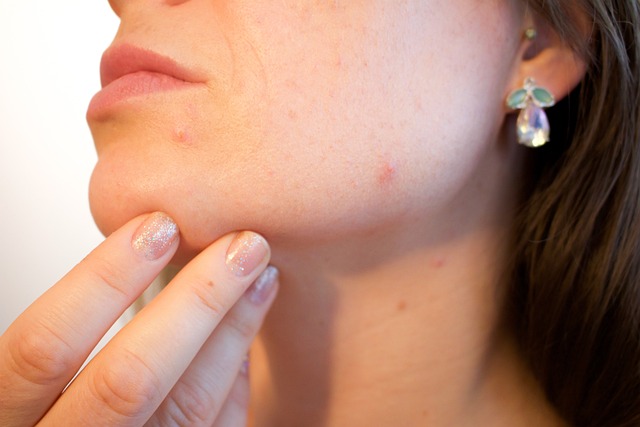A lot of people’s skincare regimens now include anti-aging products as they try to achieve the goal of younger, more vibrant skin. These products are sold in pharmacies and beauty stores all around the world. They claim to tighten skin, remove wrinkles, and renew the appearance. However, an important question persists in the midst of all the flashy advertising and encouraging claims: do anti-aging creams really work?
Understanding Anti-Aging Creams
There is a wide variety of anti-aging creams on the market, each with its own unique composition to fight the telltale symptoms of age. These items, which range from serums and night creams to moisturizers, aim to diminish the appearance of fine lines and wrinkles, as well as skin tone irregularities and elasticity loss. The anti-aging benefits of retinoids (vitamin A derivatives), peptides, hyaluronic acid, antioxidants (vitamins C and E), and plant extracts are typically found in these products.
Scientific Perspective: What Research Says
Understanding the efficacy of anti-aging creams relies on scientific study. The effect of important components on skin aging has been the subject of a great deal of research. Extensive research has shown that retinoids can improve skin texture and delay the onset of wrinkles by increasing skin cell turnover and stimulating collagen formation.
Antioxidants can shield skin from free radical damage, which delays aging, and clinical research on peptides have demonstrated encouraging effects in increasing collagen production and enhancing skin firmness. Thanks to its ability to retain moisture, hyaluronic acid plumps skin and diminishes the look of fine wrinkles.
Important considerations include active component concentration, formulation stability, and study duration, all of which can cause research results to differ. Due to a lack of comprehensive research, it is difficult to determine the exact long-term benefits of these creams.
How Anti-Aging Creams Work
Different anti-aging creams target different aspects of aging through different techniques. For instance, retinoids help improve skin texture and diminish the appearance of age spots by speeding up cell turnover. Peptides improve skin suppleness and diminish sagging by inducing an increase in collagen production by skin cells. In order to maintain the appearance of young skin and protect it from oxidative stress, antioxidants work by neutralizing free radicals.
In addition, the hydrating ingredients in these creams help the skin’s barrier function, which is essential for keeping the skin supple and looking young. These products plump the skin by restoring moisture, which in turn reduces the look of wrinkles and fine lines.
User Experiences and Consumer Reports
The results that anti-aging creams provide to users can differ greatly. Reduced wrinkles, increased firmness, and a more radiant complexion are some of the noticeable changes reported by clients. When people write glowing reviews, they usually talk about how their confidence and happiness with their skincare routine have grown.
Additional information regarding the effectiveness of the product and the degree of customer satisfaction can be found in consumer reports and surveys. Due to individual skin sensitivities or unreasonable expectations, some people may see modest improvements or be dissatisfied, while others may achieve considerable results.
Expert Opinions and Dermatological Insights
In clinical settings, dermatologists are vital in determining whether anti-aging treatments are effective. Product formulations, ingredient efficacy, and individualized skincare advice are all areas in which their knowledge and experience shine. Choosing products with chemicals that have been validated in science is crucial, according to dermatologists, who warn against depending on marketing promises alone.
To get the best results, they suggest custom skincare programs for different skin types and issues, with an emphasis on using products consistently and following a thorough skincare routine.
Factors Influencing Effectiveness
How well anti-aging creams work depends on a number of things. Certain formulations are more appropriate for aged, oily, dry, sensitive, or type 2 skin, among other skin types and conditions. Achieving intended outcomes is also highly dependent on the formulation’s quality and the quantity of its active components.
Time of use and regularity are of utmost importance. Although you might see a little improvement after a few weeks, you usually have to keep applying it for at least a few months to see any real change. The effectiveness of anti-aging creams depends on the user’s patience and dedication to a skincare regimen.
Controversies and Misconceptions
Many people have false beliefs about anti-aging treatments, and the skincare industry is no exception. Customers may be let down when the product doesn’t live up to their lofty expectations if they are led to believe overly dramatic marketing claims. Cosmetics can make deceptive claims as regulatory agencies like the FDA monitor their safety but do not mandate extensive effectiveness testing.
In order for customers to make informed skincare choices, it is essential that they learn to differentiate between claims made by marketers and advantages supported by data. You can make sense of the skincare market’s complexity by familiarizing yourself with cosmetic regulations and consulting with skincare experts.
Conclusion
Do anti-aging creams actually work? The key is to have a sophisticated grasp of skincare science, as well as user stories and professional opinions. Results may differ from person to person depending on factors such as skin type, product composition, and regular use, while scientific research does support the effectiveness of essential ingredients in fighting visible indications of aging.
Consistent use of anti-aging creams formulated with tried-and-true active ingredients, selected for certain skin issues, and integrated into an all-encompassing skincare routine can lead to visible results in due course. To maximize skincare results and attain healthier, younger-looking skin, it is vital to follow dermatologist-recommended guidelines and have reasonable expectations.
Innovative solutions for preserving skin health and vitality are promised by future breakthroughs in skincare research. Being well-informed and taking the initiative when it comes to skincare options allows individuals to confidently and clearly traverse the anti-aging product market.



Pingback: What Age is Good for Anti-Aging Cream? A Guide to Starting Skincare Early - Wellness Readers Digest